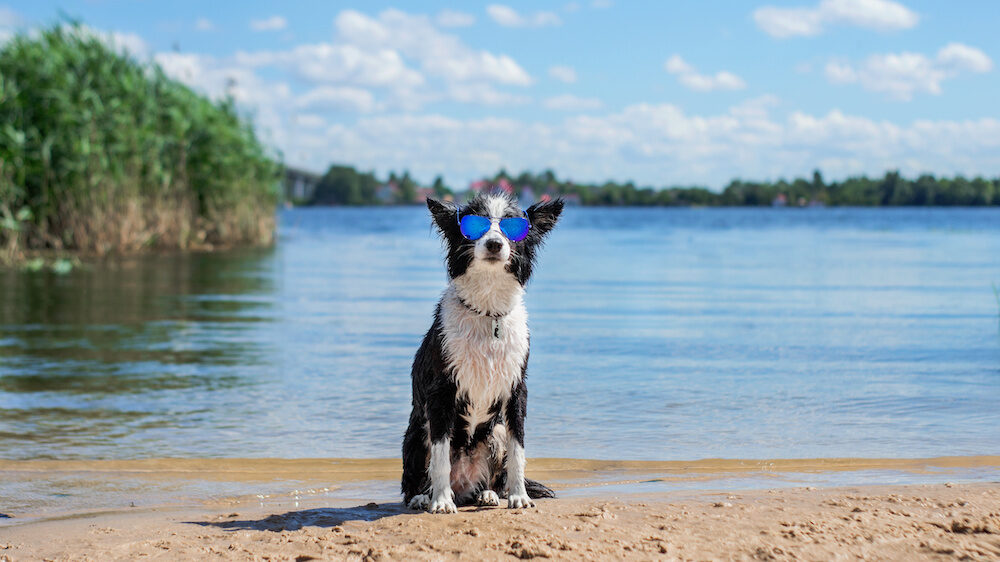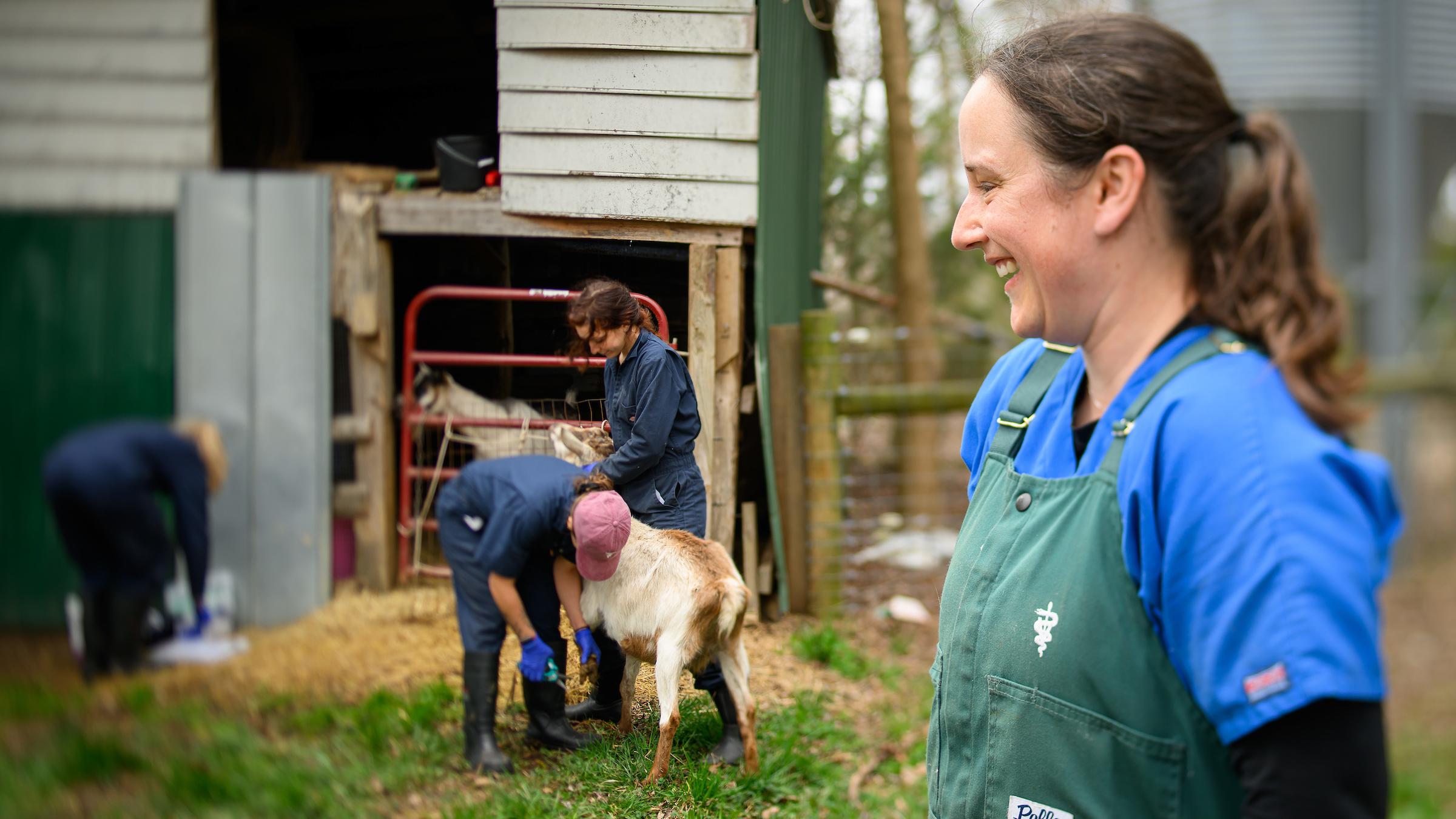How to Keep Pets Healthy and Happy This Summer

Summer is here, and North Carolina is feeling the heat.
With the rising temperatures and humidity, Steve Marks, associate dean and director of veterinary medical services at the NC State College of Veterinary Medicine and Veterinary Hospital, does not want your outdoor activity to include an emergency visit to the veterinarian.
“Pets can suffer from heatstroke, dehydration, even sunburn,” says Marks. “It does not take long for a pet to become dangerously overheated.”
While all pets are at risk, says Marks, short-nosed dogs and pets that are older, very young, overweight, have heavy coats and those with pre-existing diseases may need extra care.
Marks advises owners to take immediate action if the pet is panting excessively or has difficulty breathing, has an increased heart and respiratory rate, dry gums, glazed eyes, drools, appears tired, weak or in a stupor.
“Place your pet in the shade or air conditioning and apply cool—not cold—water to reduce the animal’s core body temperature,” Marks says. “Get help from your veterinarian as soon as possible.”
Other basic hot weather tips for pets
- Never leave your dog in the car — never. Even on a pleasant day, temperatures in a parked car with the windows rolled down can exceed 100 degrees within 10 minutes.
“It only takes a few minutes for a dangerous level of heat to build within the interior of a car,” says Marks. “Dehydration, heatstroke, and even brain damage to the dog or cat can occur.”
- Take walks in the cooler parts of the day and carry water with you for you and your dog. Remember asphalt gets very hot. If you cannot hold your hand on the asphalt for 30 seconds it is too hot to walk your dog.
- Make sure your dog has ample shade and a constant source of cool water when outside. Consider an inexpensive child’s plastic pool as a quick cool down for your pet or a spray from the garden hose.
- Summer is the high season for fleas and ticks of all kinds, and the appropriate application of veterinarian-recommended tick medication can help keep your pet free from these pests.
Other summertime hazards to pets include:
- Toxic agents that could be consumed such as plant food and fertilizers, insecticides and pesticides.
- Slug, snail, mole and gopher baits
- Coolants
- Citronella candles
- Insect coils that may be around the home and yard.
- A compost bin or garbage may result in an emergency visit to the veterinarian with your pet having uncontrolled, non-stop shaking — symptoms of potentially lethal tremorgenic mycotoxin intoxication from ingesting fungus found on decomposing objects.
- Ponds and other stagnant water that could contain various water-borne parasites such as Giardia, Coccidia, Leptospira, Campylobacter, and Cryptosporidia and cause mild to severe diarrhea.
- The heat, loud noise and confusion of crowded summer events can stress pets and is not an enjoyable experience for them.
What to do if you’re concerned for your pet
- A check-up visit with your primary care veterinarian is a good way to begin a healthy and safe summer and to ensure necessary vaccinations are kept up to date.
- Maintain recommended heartworm medication since the potentially deadly heartworm disease is transmitted by mosquitoes.
- Make sure your pet is always wearing a collar or identification such as a microchip.
- Contact your veterinarian right away and/or take your pet to an emergency hospital if you have a medical concern.
- As a resource for pet owners whose veterinarian is not available, the Veterinary Hospital at NC State provides a Small Animal Emergency Service 24 hours a day, seven days a week. Owners should call 919.513.6911 for small animal concerns and 919.513.6630 for large animal issues.
For more on these and other pet safety tips go here.
- Categories:


